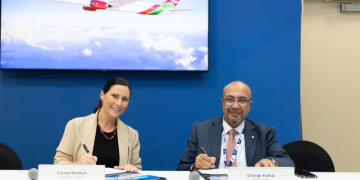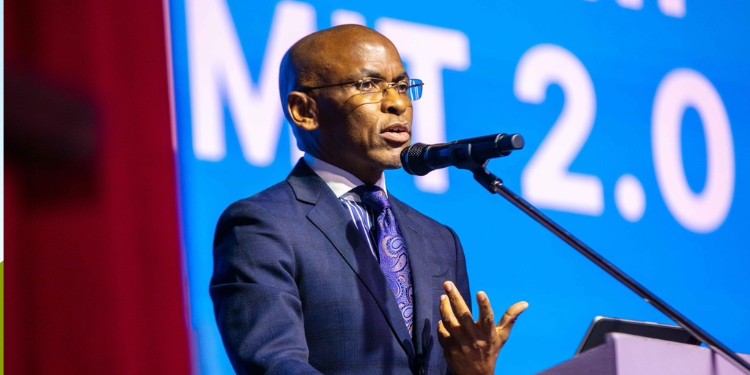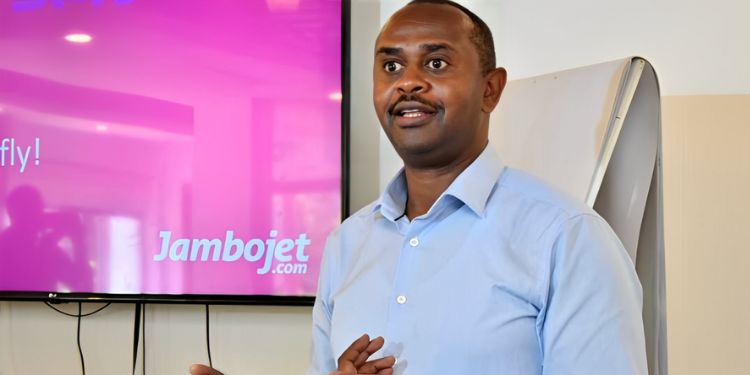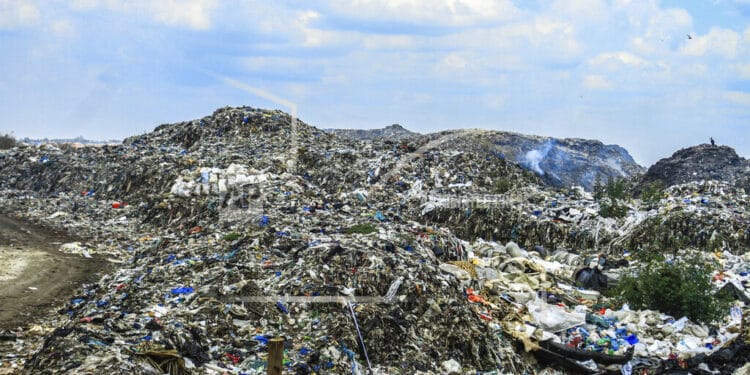In the heart of Nairobi’s sprawling Dandora dumpsite, a powerful narrative is brought to life through Greenpeace Africa’s short film, “Dumped: A Waste Picker’s Story.” The documentary follows Joyce Wangari, a determined waste picker who survives by combing through mountains of trash, braving toxic fumes and unsafe conditions just to earn a living.
“Every month, I’m in the hospital. My voice disappears. My chest hurts. And I know it’s because of this place,” she says in the film—her voice a haunting reminder of the toll plastic pollution takes on human health and dignity.
Her story has reignited the national conversation on the human cost of plastic waste, particularly the plight of Kenya’s informal waste pickers who continue to labor without recognition, protection, or fair compensation.
Waste Pickers Demand Dignity
Gisore Nyabuti, Secretary General of the Kenya National Waste Pickers Welfare Association, described Joyce’s story as painfully familiar.
“Waste pickers are the backbone of Kenya’s recycling economy, yet we are treated like disposable people,” Nyabuti said. “We don’t want pity—we want dignity, fair pay, and formal recognition.”
He called on the government to incorporate waste pickers into the national waste management framework, provide them with protective equipment, and guarantee healthcare access.
Despite waste pickers playing a central role in collecting, sorting, and diverting plastics from landfills, they remain excluded from formal systems of compensation and decision-making. With no contracts or legal protections, many waste pickers—mostly women and youth—risk serious injury and chronic illness to sustain their livelihoods.
Environmental Justice Perspective
Dorothy Otieno, a well-known environmental justice advocate, said the film is a wake-up call for Kenya and the world.
“This isn’t just about trash—it’s about power and injustice,” Otieno said. “Corporations continue to flood the market with single-use plastics while communities like Dandora suffer the consequences. Women like Joyce are paying the price with their health.”
Otieno added that systemic change requires the government and industry to invest in sustainable alternatives such as refill and reuse systems and prioritize waste pickers’ voices in policy-making. “Climate justice without social justice is incomplete,” she added.
Industry Responds
Responding to the film and growing public concern, Georgina Wacuka, Regulatory Compliance Officer at the Kenya Association of Manufacturers (KAM), acknowledged the urgency of addressing plastic waste, while highlighting the industry’s efforts to transition toward a circular economy.
Also Read: Govt Opens Nominations for National Heroes Awards Ahead of Mashujaa Day
“The challenges faced by waste pickers are real and heartbreaking,” Wacuka said. “As manufacturers, we have a responsibility to be part of the solution. That includes designing products that are easier to recycle, supporting Extended Producer Responsibility (EPR) schemes, and investing in community partnerships that uplift waste pickers.”
She emphasized that the private sector cannot work in isolation.
“We need collaboration between government, civil society, and the private sector to improve waste infrastructure and promote responsible production and consumption.”
Wacuka also noted that KAM is actively engaging with national and county governments to strengthen Kenya’s circular economy framework and develop sustainable waste management systems that include the informal sector.
Beware of Greenwashing
Despite these assurances, some critics warn that greenwashing—the practice of companies marketing themselves as environmentally friendly without making substantial changes—remains a serious problem. Environmentalists argue that a few token recycling campaigns or small-scale projects often mask the continued production of vast amounts of single-use plastics.
“Greenwashing creates a false impression that the plastic pollution crisis is being tackled when, in reality, corporate profit still drives overproduction of plastic,” said Gerance Mutwol, Plastics Campaigner at Greenpeace Africa. “Consumers and policymakers must be vigilant and demand transparency and accountability.”
Buy-Back Schemes Offer a Path Forward
One such approach being explored is the implementation of buy-back or take-back schemes, where manufacturers and retailers offer incentives for consumers to return used plastic packaging. These programs not only reduce litter and landfill waste but also create additional income streams for waste pickers by guaranteeing a market for collected materials. Advocates argue that well-regulated take-back systems can help shift responsibility for plastic waste upstream—back to the producers—and build a more equitable and efficient recycling ecosystem.
The Problem with Poverty Packaging
However, another challenge lies in what experts call “poverty packaging”—the widespread use of single-use sachets and small plastic containers designed for low-income consumers who can only afford goods in small quantities. While these products offer short-term affordability, they contribute disproportionately to plastic pollution due to their non-recyclable nature.
“We must rethink the design of these products. Sustainable access shouldn’t mean polluting the very communities it seeks to serve,” Otieno emphasized.
Gerance Mutwol, Plastics Campaigner at Greenpeace Africa, echoed these concerns:
“Poverty packaging is a false solution. It creates dependence on single-use plastics, traps low-income communities in waste, and shifts the burden from corporations to vulnerable people. What we need are refillable and reusable systems that serve both the environment and social justice.”
Also Read: Govt in Partnership with World Bank Announces Internship Opportunities
Mutwol emphasized that the film Dumped is part of a broader campaign to hold corporations accountable and push for legally binding measures under the UN Global Plastics Treaty to phase out single-use plastics altogether.
Infrastructure and Policy Gaps
Kenya’s progress toward sustainable waste management is hindered by limited investment in material recovery facilities (MRFs)—industrial plants that sort and process recyclable waste. MRFs are vital for streamlining recycling efforts, yet few counties have access to them. This leaves waste pickers to manually sort through hazardous landfill waste, further endangering their health.
A recent Tearfund report ranked Kenya among countries where multinational corporations have failed to take adequate responsibility for plastic pollution. The report criticized companies for flooding markets with plastic packaging while doing little to invest in waste collection, recovery, or consumer education. It called on the Kenyan government to enforce stronger EPR laws and support infrastructure that includes informal workers like waste pickers.
Toward a Just Transition
The Dandora dumpsite, one of Africa’s largest, receives more than 2,000 tonnes of waste daily. Waste pickers, despite their crucial role in diverting recyclable materials, remain excluded from Kenya’s formal economy.
Greenpeace Africa’s film brings this crisis into sharp focus—calling not only for policy reform but for moral clarity in how Kenya treats its most vulnerable environmental defenders.
As global negotiations continue on the UN Global Plastics Treaty, the message from Kenya’s waste pickers, environmentalists, and even some manufacturers is increasingly clear: true sustainability must be inclusive, equitable, and urgent.
“The time to act is now,” said Mutwol. “If we want to solve the plastic crisis, we must listen to those who live with its consequences every day.”
To watch the full documentary, visit Greenpeace Africa’s official website.
Follow our WhatsApp Channel and X Account for real-time news updates













































































